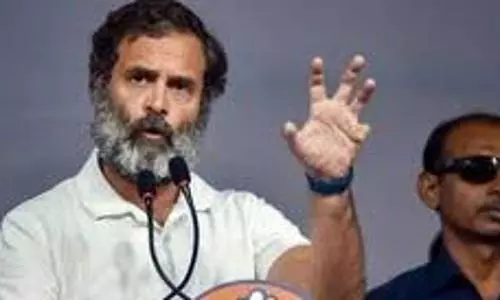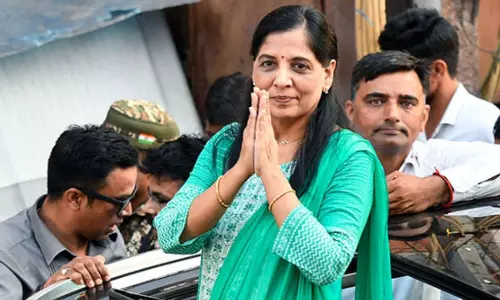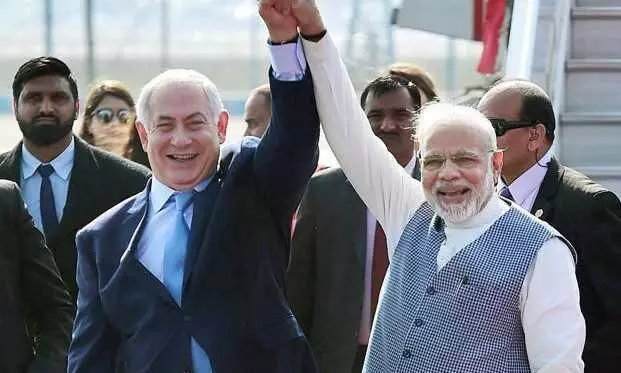
Pro-Israeli, fake, disinformation social media posts show India’s shifting stance
text_fieldsNew Delhi: With the recent escalation of the conflict between Palestine and Israel, over 70 per cent of fake news and disinformation content, characterized by pro-Israel and anti-Muslim social media posts, has reportedly originated from India, indicating a significant departure from the country's traditional stance against Israel's occupation.
Within hours of the conflict erupting, a surge of support for Israel, coupled with the spread of fake news, flooded various platforms.
Experts note a connection between this wave of pro-Israel sentiment and the rise of Hindu nationalist ideologies, particularly under the BJP government at the Centre, according to a report published in Al Jazeera.
The report quoted Apoorvanand, a Delhi University professor, highlighting a growing "anti-Muslim sentiment" that aligns with the ideology of Hindutva, where Israel is viewed as a model for dealing with perceived threats from Muslims.
Nicolas Blarel, an international relations professor, observes a "generational shift" in India's fascination with Israel, citing border tensions with China and attacks from armed groups in Pakistan. He suggests that the BJP has sought closer ties with Israel due to shared concerns about counterterrorism.
India's historical support for Palestine, dating back to 1947, has seen a transformation. Traditionally pro-Palestine, India has shifted to a more empathetic stance towards Israel. This change gained momentum after the 2008 Mumbai attacks, where India accused a Pakistan-based group. Trade, innovation, and military cooperation have further solidified the ties between India and Israel afterwards, the report suggests.
The Modi government's use of Israeli technology, arms procurement, and the Pegasus spyware controversy indicate a deepening relationship. The biggest shift in India's foreign policy towards Israel occurred under Modi's leadership in 2014, culminating in his historic visit 2017.
In the aftermath of the recent conflict, Modi issued strong declarations supporting Israel, emphasizing solidarity and condemning terrorism. However, these statements notably lacked any reference to the lives or plight of Palestinians.
Analysts suggest this shift is influenced by domestic political considerations, appealing to Modi's right-wing constituency and signalling a departure from India's traditionally balanced policy.
The social media landscape in India reflects this shift, with hashtags like "We Indians" trending during the conflict. Analysis of tweets showed a significant pro-Israel sentiment, with a five-to-one ratio in favour of Israel.
The Narrative Research Lab in New Delhi highlighted the use of hashtags like "#IstandwithIsrael," revealing a convergence of issues that resonate with both Modi's leadership and Israeli Prime Minister Netanyahu's approach to regional challenges.
While the Modi government attempts to maintain a more balanced position publicly, critics argue that early statements indicate a focus on political interests, potentially alienating the Muslim population. Observers note ideological similarities between Hindu nationalists and Zionists, citing a common desire for a strong state and leader and shared Islamophobia.
India's evolving stance on the Israel-Hamas conflict reflects a complex interplay of geopolitics, domestic ideologies, and the power of social media in shaping public opinion. As the world watches these dynamics unfold, the question remains: how will this influence India's future foreign policy decisions in the tumultuous landscape of the Middle East?












